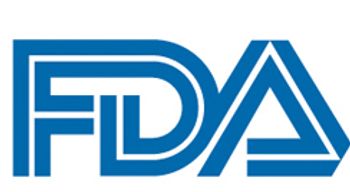
The landscape of metastatic hormone receptor (HR)-positive breast cancer continues to evolve, highlighting the necessity of genetic and genomic testing, explained Elisa Krill-Jackson, MD.

The landscape of metastatic hormone receptor (HR)-positive breast cancer continues to evolve, highlighting the necessity of genetic and genomic testing, explained Elisa Krill-Jackson, MD.

The Food and Drug Administration (FDA) approved the combination of nivolumab (Opdivo) plus ipilimumab (Yervoy) for the treatment of previously treated patients with advanced hepatocellular carcinoma.

We want to hear from nurses what your institutions are doing to safeguard employees and patients against the coronavirus, as well as common patient questions you’ve been receiving.

At this point, the number of new confirmed cases of coronavirus infection seems to change every day, with more than 100,000 infections reported worldwide.

The FDA has granted an orphan drug designation to umbralisib for the treatment of patients with follicular lymphoma, according to TG Therapeutics, Inc, the developer of the dual inhibitor of PI3K-delta and CK1-epsilon.

Enhanced navigation led some high-risk patients to an earlier breast cancer diagnosis, according to recent research.

The FDA has accepted a biologics license application for a proposed biosimilar for bevacizumab (Avastin), according to an announcement by Mylan during its fourth quarter 2019 earnings call.

The FDA, CDC, and NIOSH worked together to allow industrial-grade respirators to be used by healthcare workers to mitigate their risk of contracting the coronavirus.

Key elements that should inform treatment decisions for patients with metastatic colorectal cancer (mCRC) include molecular profiling, tumor sidedness, and microsatellite instability–high (MSI-H)/mismatch repair deficient (dMMR) status, according to Michael J. Overman, MD.

Electronic medical records are helpful when treating patients with CAR T-cell therapy. However, many systems still are not designed for this type of treatment and need to be improved.

The antidepressant phenelzine showed antitumor activity in patients with biochemical recurrent castrate-sensitive prostate cancer, according to a pilot study conducted by researchers at the University of Southern California (USC).

Oncology Nursing News will be speaking with experts on the matter, and we want to hear from our audience what kind of questions you have.

ASCO recently issued practice guidelines for pathologic diagnosis of breast implant-associated anaplastic large-cell lymphoma (BIA-ALCL) to help healthcare practitioners better this rare disease.

The Food and Drug Administration (FDA) approved isatuximab-irfc (Sarclisa) plus pomalidomide and dexamethasone for the treatment of adults with multiple myeloma who had 2 or more prior therapies, including lenalidomide and a proteasome inhibitor.

The FDA granted priority review to a biologics license application for tafasitamab in combination with lenalidomide for the treatment of patients with relapsed or refractory diffuse large B-cell lymphoma.


In an effort to make the use of laparoscopic power morcellators (LPMs) a safer and more effective choice in gynecologic surgeries, the FDA has released a statement that it will be putting a handful of strategies and recommendations in place

Autologous stem cell transplantation continues to have a significant role for patients with high-risk myeloma; however, research efforts continue to focus on novel induction, consolidation, and maintenance regimens, as well as the use of tandem transplant, explained Andrew Branagan, MD.

Graft-versus host disease has improved in recent years, but there is still more work to be done.

Here are the top 5 Oncology Nursing News® stories for February 2020.

The FDA Oncologic Drugs Advisory Committee voted 6 to 5 that ramucirumab plus erlotinib demonstrated a favorable benefit and risk profile for patients with untreated metastatic EGFR-positive non-small cell lung cancer.

Adolescent and young adult patients fall between the 2 age groups that clinicians are used to seeing, leading to gaps in care and poor outcomes.

The FDA has approved a supplemental new drug application (sNDA) for neratinib (Nerlynx) in combination with capecitabine (Xeloda) for the treatment of adult patients with advanced or metastatic HER2-positive breast cancer who have received ≥2 prior anti–HER2-based regimens in the metastatic setting.

The FDA has accepted a Biologics License Application (BLA) for a fixed-dose combination (FDC) of pertuzumab (Perjeta) and trastuzumab (Herceptin) with hyaluronidase, administered by subcutaneous (SC) injection in combination with intravenous (IV) chemotherapy, for the treatment of eligible patients with HER2-positive breast cancer.

The FDA has accepted a supplemental New Drug Application (sNDA) for niraparib (Zejula) for use as a frontline maintenance treatment for women with advanced ovarian cancer who responded to platinum-based chemotherapy regardless of biomarker status.


The fields of early-stage hormone receptor (HR)–positive and metastatic HER2-positive breast cancer have made great strides in recent years, said Neelima Denduluri, MD, and such progress could be attributed to the emergence of tailored treatment strategies and the use of HER2-directed agents, respectively.

Save the date! We invite you to join Oncology Nursing News for an #OncNurseConnect Tweet Chat on Thursday, February 27, at 1 p.m. EST, when we plan on discussing the popular topics in nursing covered in our latest issue.

The FDA has granted a priority review designation to a supplemental new drug application (sNDA) for selinexor (Xpovio) as a treatment for adult patients with relapsed/refractory diffuse large B-cell lymphoma (DLBCL), not otherwise specified, who have received ≥2 prior therapies.
